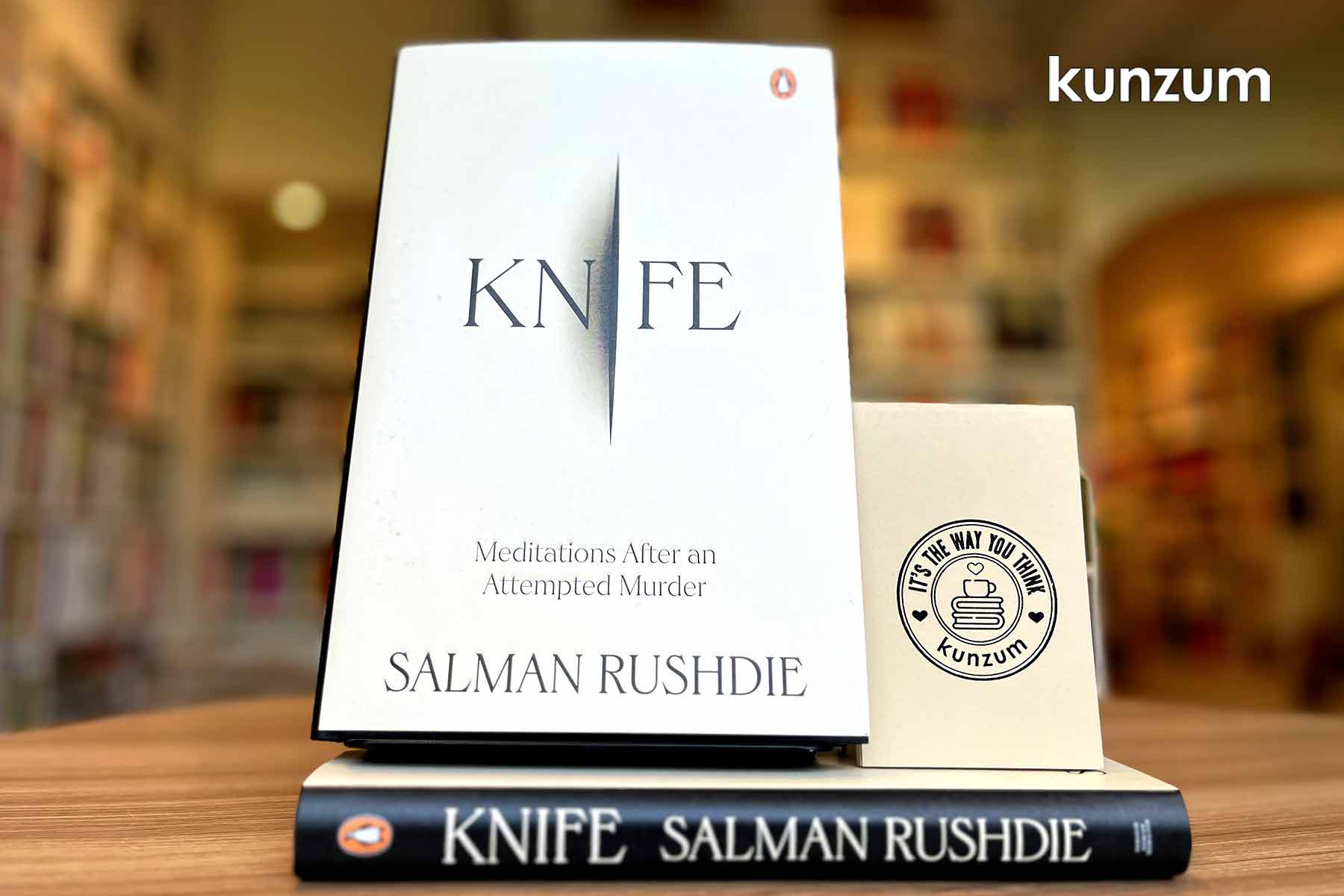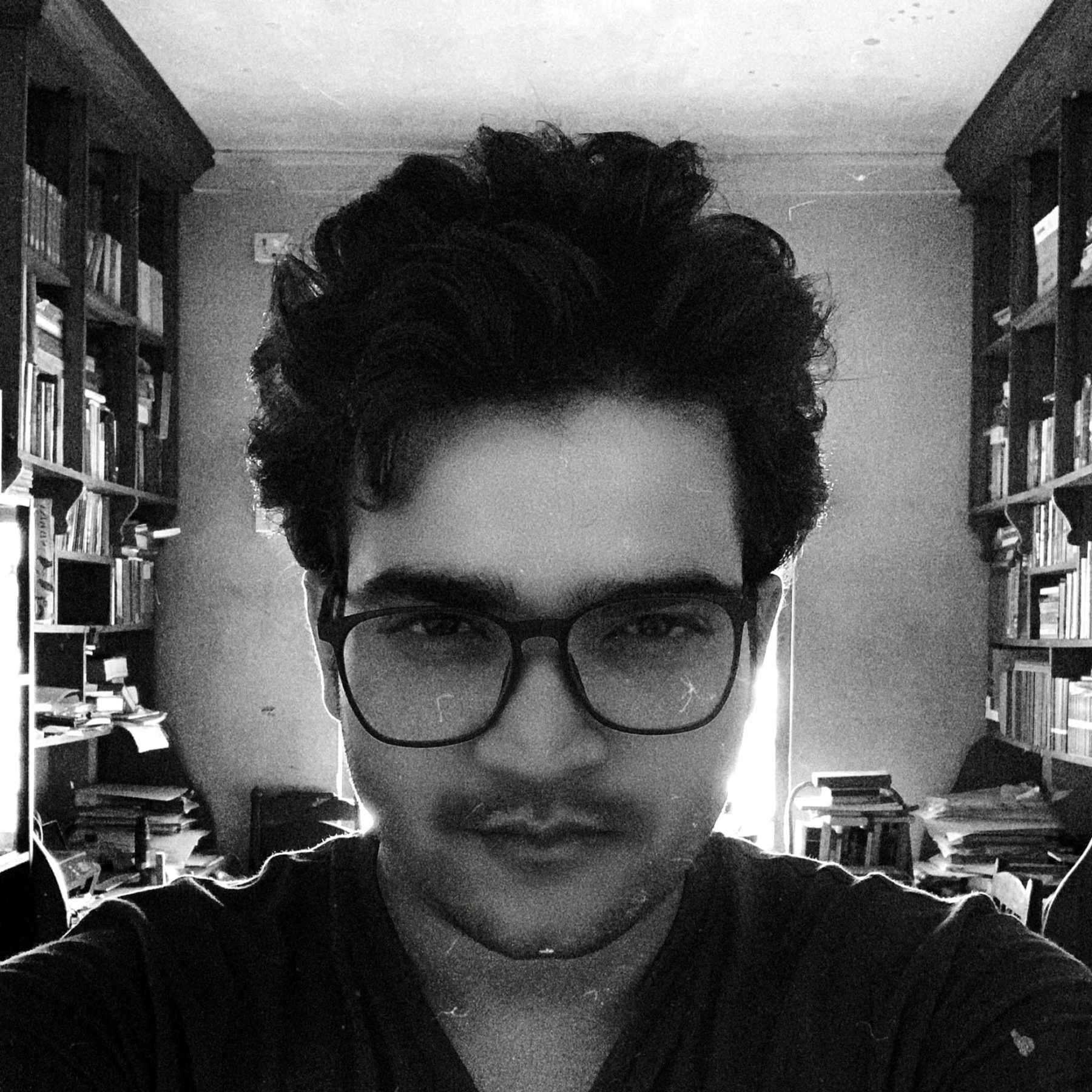
At a quarter to eleven on August 12, 2022, on a sunny Friday morning in upstate New York, Salman Rushdie was attacked and almost killed by a young man with a knife. He was standing on stage at the amphitheatre in the Chautauqua Institution, preparing to deliver a lecture on the importance of keeping writers safe from harm, when the man, clothed in black, rushed down the aisle and stabbed Rushdie several times in the face, neck, chest, hand, abdomen, and thigh. The ferocious attack, lasting all of 27 seconds from beginning to end, left Rushdie lying in a pool of his own blood. “So it’s you,” Rushdie remembers thinking. “Here you are.” Death was finally coming at him. Only — it struck him as anachronistic. He thought: “Why now, after all these years?”
Two nights before he flew to Chautauqua, the Booker Prize-winning author — loved and loathed in equal measure across the world — had a dream about being attacked by a man with a spear, “a gladiator in a Roman amphitheatre.” It felt like a premonition, Rushdie writes in Knife, his new memoir, even though he doesn’t believe in premonitions. “I don’t want to go,” he told his wife Eliza — the American poet, novelist, and photographer Rachel Eliza Griffiths — before deciding he should go. After all, he had outlasted threats of assassination for more than three decades.
Almost thirty-three years before the attack, in February 1989, Ayatollah Ruhollah Khomeini — then the Supreme Leader of Iran — had declared Rushdie’s 1988 novel, The Satanic Verses, “blasphemous” and issued a fatwa, a formal ruling, ordering the execution of Rushdie and all those involved in its publication. Rushdie, then a resident of London, would spend the next twelve years in a fugitive existence as “Joseph Anton”, living under constant police protection. But more than two decades had passed since then, and in all those years Rushdie had lived as a free man, written several critically acclaimed and commercially successful books, taught, lectured, travelled, attended literary events in different continents, married, divorced, and remarried, and become somewhat of a fixture in the upper echelons of New York society. His would-be assassin, then, was a ghost from a world Rushdie thought had long forgotten about him. He was right. And he was wrong.
The 24-year-old man who tried to kill him was born in California and lived in Fairview, New Jersey. And while his parents were originally from Yaroun in south Lebanon, he had been there only once, in 2018, and had no apparent connections to the Hezbollah or the Iranian Revolutionary Guards Corps. By all accounts publicly available, he was a lone perpetrator, acting on his own, and out of his own volition after admittedly reading only a few pages of The Satanic Verses and watching a few videos about Rushdie on YouTube.
But Knife is not a book about this man whom Rushdie only refers to as “the A.”, even though he returns again and again to write about his would-be assassin and his would-be assassination. Knife is a book about Salman Rushdie — the man “the A.” tried to kill — and his need to understand himself anew after this terrible attack. Near the end of the book, Rushdie writes an almost 30-page long imagined conversation between the two where they talk about everything from The Princess Bride to Call of Duty, and the ruthlessness of his 27-second-long attempt to murder Rushdie to the core tenets of Islam, Incel culture, and online radicalisation. This imagined interview comes off as somewhat corny and clichéd at times, but it reveals the crucial imaginative process through which the author has tried to make sense of this brutal attack that left him disabled and disfigured. Rushdie has never met the man, and that’s apparent in these pages, but who would hold that against him? The interview is not the best piece of fiction Rushdie has ever written, but perhaps it’s the most honest. Perhaps that’s enough.
This is where Knife shines: Rushdie is at his best when he writes about the visceral and violent attack and it’s bloody gore-filled aftermath, his ordinary struggle to breathe, to sit, to walk, to speak during recovery, with unsparing honesty and in sometimes excessive gratuitous detail. From writing about the loss of his right eye with tremendous vulnerability, to explaining, with a touch of humour, how his free-associative mind works by drawing influences and references from sources as vast and varied as South Indian history to apocryphal stories about oral sex, Neil Armstrong, and the Moon landing as only he can, Rushdie’s autobiography preserves and celebrates the idiosyncratic brilliance of the author. But the book falters when he ventures into the philosophical and offers truisms like, “art is not luxury,” or “love is a force, (…) in its most potent form it can move mountains,” or when he writes about meeting Eliza — the woman who would become his fifth wife — for the very first time and wallows in over-sentimentality. There are sporadic reflections on freedom and freedom of expression in art and literature, anecdotes about his literary life and influences, but at its heart, Knife is a love-story, and Eliza its driving force.
You want to like Knife for what Rushdie’s life and work represent — a fatalistic commitment to free speech and freedom of expression. But sometimes it disappoints you with what it is — a relatively straightforward memoir that leaves you exasperated and ultimately with a sort of ambivalent feeling. Written 12 years after his first memoir Joseph Anton, Knife lacks the narrative depth and literary craftsmanship of that book recounting Rushdie’s years of hiding from the fatwa, the dissolution of his second marriage to novelist Marianne Wiggins, and the beginning and end of his third marriage to Elizabeth West, which also fell apart during those years. One does not expect the kind of banal sentimentality Knife indulges in from an author of Rushdie’s calibre, but maybe he needed to write this to heal, to find his feet, to anchor himself to his life again. You have to pause and remind yourself again and again while reading Knife that there is a human being behind these pages, with all too human limitations and vulnerabilities and flaws. But what Knife lacks in depth, it makes up for in honesty, humour, and this all too human vulnerability.
Despite the severity of his injuries and the loss of his eye, Rushdie remains entirely and wholly Rushdie on the page — defiant, irreverent, and sardonic at his best, and a smug, self-satisfied, show-off at his worst. Even when he recounts the extent of the damage suffered by his body in excruciating detail, it is obvious that this is the same Rushdie we love and hate and love to hate — unchanged and undaunted and with all the good and bad and terrific and tedious parts we have come to expect from his writing over the years. Salman Rushdie is still here, Salman Rushdie is still writing, and perhaps that’s reason enough to read Knife. Perhaps.
Pick up Salman Rushdie’s “Knife” from any Kunzum store or WhatsApp +91.8800200280 to order. Buy the book(s) and the coffee’s on us.

About the Reviewer:
Drishya (he/him ⸱ b. 1997) is a writer + artist based in Kolkata, India. He was shortlisted for the Mogford Prize for Food & Drink Writing, nominated for the BBA Photography Prize – One Shot Award in 2022, and selected for the ICA Long Form Food Writing Mentorship in 2024. He is @drishyadotxyz on Instagram and X.
